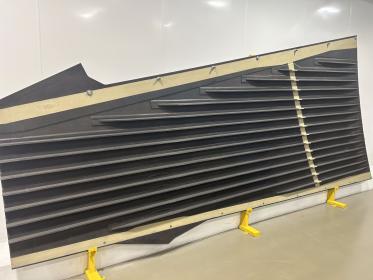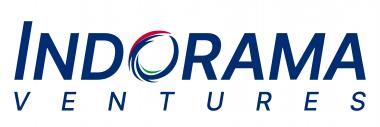NCAMP Qualification for Teijin
Teijin Carbon announced the NCAMP (National Center for Advanced Materials Performance) qualification of its Tenax™ IMS65 E23 24K non-crimp fabrics (NCF) and woven unidirectional (UD) materials, in conjunction with the Syensqo PRISM® EP2400 epoxy resin system. This milestone marks the first NCAMP qualification of dry carbon reinforcements using vacuum assisted resin transfer molding (VARTM) as a standalone and process-separable infusion route.
The Teijin Carbon materials are formally qualified under material specification NMS 241 and process specification NPS 82401 and are accompanied by a publicly available NCAMP material property data report. The NCAMP program is sponsored by the U.S. Federal Aviation Administration.
The NCAMP database supports proof of equivalence across various types of infusion equipment and techniques, opening the door for broader aerospace adoption of out-of-autoclave (OoA) composite manufacturing.
Partnership with Mississippi State University Enhances Implementation
To support practical implementation of the qualified system and part development, Teijin Carbon and Syensqo have partnered with Mississippi State University’s Advanced Composites Institute (MSU-ACI) in Starkville. With its advanced VARTM capabilities and scalable tooling strategies, MSU-ACI plays a key role in validating process robustness and material consistency. The institute helps give manufacturers confidence that they can achieve aerospace-grade quality with accessible, cost-effective production methods.
This collaboration reflects Teijin Carbons’s commitment to facilitating the adoption of infusion technologies by reducing learning curves and enabling faster design-to-certification pathways through NCAMP-qualified data.
Material Benefits for Structural Aerospace Applications
The newly qualified Tenax™ non-crimp facric based on IMS65 E23 24K combined with the Syensqo PRISM® EP2400 epoxy resin system deliver:
- Out-of-autoclave processing with autoclave-comparable mechanical performance
- High fiber volume with near-zero void content
- Long out-life dry preforms — ideal for large, complex components
- Global availability of all components by sea, land, or air
- Accelerated FAA certification with publicly available B-basis allowables
This qualification offers aerospace OEMs and tier suppliers a scalable and robust alternative to traditional prepreg processing. It is suitable for small to extra-large primary or secondary structures as well as integrated parts such as control surfaces, access panels, fairings, in commercial and defense platforms. This processing method can contribute to efficient and resource-conscious manufacturing aligned with the aerospace industry's sustainability goals.
Teijin Carbon and Syensqo will continue to collaborate under the partnership with Mississippi State University to provide the world with advanced composite material solutions that can shape a more efficient, resilient, and sustainable future for aerospace.
Teijin Carbon Europe GmbH







